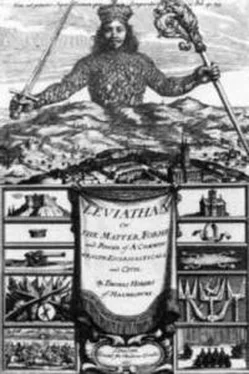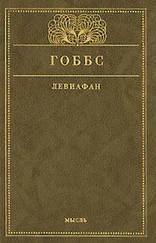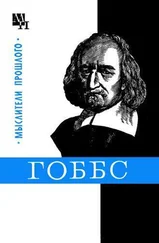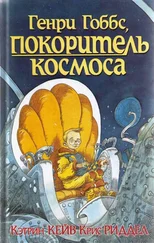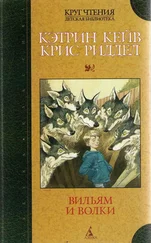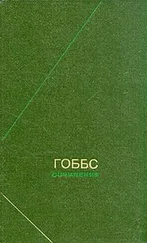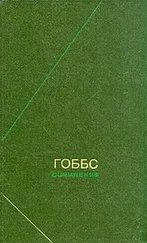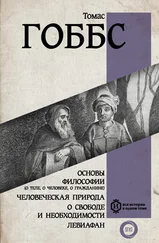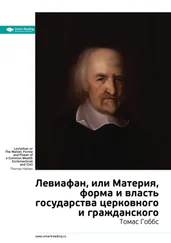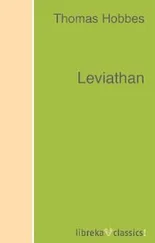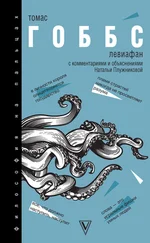The Scriptures Doe Not Teach That Spirits Are Incorporeall
Our Saviour, immediately after the Holy Ghost descended upon him in the form of a Dove, is said by St. Matthew (Chapt. 4. 1.) to have been "led up by the Spirit into the Wildernesse;" and the same is recited (Luke 4. 1.) in these words, "Jesus being full of the Holy Ghost, was led in the Spirit into the Wildernesse;" Whereby it is evident, that by Spirit there, is meant the Holy Ghost. This cannot be interpreted for a Possession: For Christ, and the Holy Ghost, are but one and the same substance; which is no possession of one substance, or body, by another. And whereas in the verses following, he is said "to have been taken up by the Devill into the Holy City, and set upon a pinnacle of the Temple," shall we conclude thence that hee was possessed of the Devill, or carryed thither by violence? And again, "carryed thence by the Devill into an exceeding high mountain, who shewed him them thence all the Kingdomes of the world:" herein, wee are not to beleeve he was either possessed, or forced by the Devill; nor that any Mountaine is high enough, (according to the literall sense,) to shew him one whole Hemisphere. What then can be the meaning of this place, other than that he went of himself into the Wildernesse; and that this carrying of him up and down, from the Wildernesse to the City, and from thence into a Mountain, was a Vision? Conformable whereunto, is also the phrase of St. Luke, that hee was led into the Wildernesse, not By, but In the Spirit: whereas concerning His being Taken up into the Mountaine, and unto the Pinnacle of the Temple, hee speaketh as St. Matthew doth. Which suiteth with the nature of a Vision.
Again, where St. Luke sayes of Judas Iscariot, that "Satan entred into him, and thereupon that he went and communed with the Chief Priests, and Captaines, how he might betray Christ unto them:" it may be answered, that by the Entring of Satan (that is the Enemy) into him, is meant, the hostile and traiterous intention of selling his Lord and Master. For as by the Holy Ghost, is frequently in Scripture understood, the Graces and good Inclinations given by the Holy Ghost; so by the Entring of Satan, may bee understood the wicked Cogitations, and Designes of the Adversaries of Christ, and his Disciples. For as it is hard to say, that the Devill was entred into Judas, before he had any such hostile designe; so it is impertinent to say, he was first Christs Enemy in his heart, and that the Devill entred into him afterwards. Therefore the Entring of Satan, and his Wicked Purpose, was one and the same thing.
But if there be no Immateriall Spirit, nor any Possession of mens bodies by any Spirit Corporeall, it may again be asked, why our Saviour and his Apostles did not teach the People so; and in such cleer words, as they might no more doubt thereof. But such questions as these, are more curious, than necessary for a Christian mans Salvation. Men may as well aske, why Christ that could have given to all men Faith, Piety, and all manner of morall Vertues, gave it to some onely, and not to all: and why he left the search of naturall Causes, and Sciences, to the naturall Reason and Industry of men, and did not reveal it to all, or any man supernaturally; and many other such questions: Of which neverthelesse there may be alledged probable and pious reasons. For as God, when he brought the Israelites into the Land of Promise, did not secure them therein, by subduing all the Nations round about them; but left many of them, as thornes in their sides, to awaken from time to time their Piety and Industry: so our Saviour, in conducting us toward his heavenly Kingdome, did not destroy all the difficulties of Naturall Questions; but left them to exercise our Industry, and Reason; the Scope of his preaching, being onely to shew us this plain and direct way to Salvation, namely, the beleef of this Article, "that he was the Christ, the Son of the living God, sent into the world to sacrifice himselfe for our Sins, and at his comming again, gloriously to reign over his Elect, and to save them from their Enemies eternally:" To which, the opinion of Possession by Spirits, or Phantasmes, are no impediment in the way; though it be to some an occasion of going out of the way, and to follow their own Inventions. If wee require of the Scripture an account of all questions, which may be raised to trouble us in the performance of Gods commands; we may as well complaine of Moses for not having set downe the time of the creation of such Spirits, as well as of the Creation of the Earth, and Sea, and of Men, and Beasts. To conclude, I find in Scripture that there be Angels, and Spirits, good and evill; but not that they are Incorporeall, as are the Apparitions men see in the Dark, or in a Dream, or Vision; which the Latines call Spectra, and took for Daemons. And I find that there are Spirits Corporeal, (though subtile and Invisible;) but not that any mans body was possessed, or inhabited by them; And that the Bodies of the Saints shall be such, namely, Spirituall Bodies, as St. Paul calls them.
The Power Of Casting Out Devills, Not The Same It Was In The Primitive
Church
Neverthelesse, the contrary Doctrine, namely, that there be Incorporeall Spirits, hath hitherto so prevailed in the Church, that the use of Exorcisme, (that is to say, of ejection of Devills by Conjuration) is thereupon built; and (though rarely and faintly practised) is not yet totally given over. That there were many Daemoniaques in the Primitive Church, and few Mad–men, and other such singular diseases; whereas in these times we hear of, and see many Mad–men, and few Daemoniaques, proceeds not from the change of Nature; but of Names. But how it comes to passe, that whereas heretofore the Apostles, and after them for a time, the Pastors of the Church, did cure those singular Diseases, which now they are not seen to doe; as likewise, why it is not in the power of every true Beleever now, to doe all that the Faithfull did then, that is to say, as we read (Mark 16. 17.) "In Christs name to cast out Devills, to speak with new Tongues, to take up Serpents, to drink deadly Poison without harm taking, and to cure the Sick by the laying on of their hands," and all this without other words, but "in the Name of Jesus," is another question. And it is probable, that those extraordinary gifts were given to the Church, for no longer a time, than men trusted wholly to Christ, and looked for their felicity onely in his Kingdome to come; and consequently, that when they sought Authority, and Riches, and trusted to their own Subtilty for a Kingdome of this world, these supernaturall gifts of God were again taken from them.
Another Relique Of Gentilisme, Worshipping Images, Left In The Church
Not Brought Into It
Another relique of Gentilisme, is the Worship of Images, neither instituted by Moses in the Old, nor by Christ in the New Testament; nor yet brought in from the Gentiles; but left amongst them, after they had given their names to Christ. Before our Saviour preached, it was the generall Religion of the Gentiles, to worship for Gods, those Apparences that remain in the Brain from the impression of externall Bodies upon the organs of their Senses, which are commonly called Ideas, Idols, Phantasmes, Conceits, as being Representations of those externall Bodies, which cause them, and have nothing in them of reality, no more than there is in the things that seem to stand before us in a Dream: And this is the reason why St. Paul says, "Wee know that an Idol is Nothing:" Not that he thought that an Image of Metall, Stone, or Wood, was nothing; but that the thing which they honored, or feared in the Image, and held for a God, was a meer Figment, without place, habitation, motion, or existence, but in the motions of the Brain. And the worship of these with Divine Honour, is that which is in the Scripture called Idolatry, and Rebellion against God. For God being King of the Jews, and his Lieutenant being first Moses, and afterward the High Priest; if the people had been permitted to worship, and pray to Images, (which are Representations of their own Fancies,) they had had no farther dependence on the true God, of whom there can be no similitude; nor on his prime Ministers, Moses, and the High Priests; but every man had governed himself according to his own appetite, to the utter eversion of the Common–wealth, and their own destruction for want of Union. And therefore the first Law of God was, "They should not take for Gods, ALIENOS DEOS, that is, the Gods of other nations, but that onely true God, who vouchsafed to commune with Moses, and by him to give them laws and directions, for their peace, and for their salvation from their enemies." And the second was, that "they should not make to themselves any Image to Worship, of their own Invention." For it is the same deposing of a King, to submit to another King, whether he be set up by a neighbour nation, or by our selves.
Читать дальше
